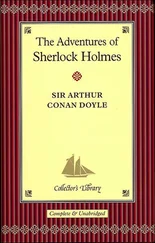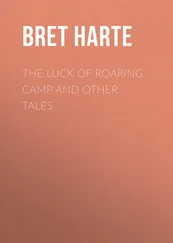Arthur Doyle - The Man from Archangel, and Other Tales of Adventure
Здесь есть возможность читать онлайн «Arthur Doyle - The Man from Archangel, and Other Tales of Adventure» — ознакомительный отрывок электронной книги совершенно бесплатно, а после прочтения отрывка купить полную версию. В некоторых случаях можно слушать аудио, скачать через торрент в формате fb2 и присутствует краткое содержание. Жанр: foreign_prose, на английском языке. Описание произведения, (предисловие) а так же отзывы посетителей доступны на портале библиотеки ЛибКат.
- Название:The Man from Archangel, and Other Tales of Adventure
- Автор:
- Жанр:
- Год:неизвестен
- ISBN:нет данных
- Рейтинг книги:5 / 5. Голосов: 1
-
Избранное:Добавить в избранное
- Отзывы:
-
Ваша оценка:
- 100
- 1
- 2
- 3
- 4
- 5
The Man from Archangel, and Other Tales of Adventure: краткое содержание, описание и аннотация
Предлагаем к чтению аннотацию, описание, краткое содержание или предисловие (зависит от того, что написал сам автор книги «The Man from Archangel, and Other Tales of Adventure»). Если вы не нашли необходимую информацию о книге — напишите в комментариях, мы постараемся отыскать её.
The Man from Archangel, and Other Tales of Adventure — читать онлайн ознакомительный отрывок
Ниже представлен текст книги, разбитый по страницам. Система сохранения места последней прочитанной страницы, позволяет с удобством читать онлайн бесплатно книгу «The Man from Archangel, and Other Tales of Adventure», без необходимости каждый раз заново искать на чём Вы остановились. Поставьте закладку, и сможете в любой момент перейти на страницу, на которой закончили чтение.
Интервал:
Закладка:
This was a man with a broad, florid face and brown side-whiskers. He was of a stout build and had rounded shoulders, with a small mole of a reddish colour over his left eyebrow. His jacket was of velveteen, and he had large, iron-shod boots, which were perched upon the splashboard in front of him. He pulled up the van as he came up to the stile near which I was standing with the maiden who had come from the dingle, and in a civil fashion he asked me if I could oblige him with a light for his pipe. Then, as I drew a matchbox from my pocket, he threw his reins over the splashboard, and removing his large, iron-shod boots he descended on to the road. He was a burly man, but inclined to fat and scant of breath. It seemed to me that it was a chance for one of those wayside boxing adventures which were so common in the olden times. It was my intention that I should fight the man, and that the maiden from the dingle standing by me should tell me when to use my right or my left, as the case might be, picking me up also in case I should be so unfortunate as to be knocked down by the man with the iron-shod boots and the small mole of a reddish colour over his left eyebrow.
"Do you use Long Melford?" I asked.
He looked at me in some surprise, and said that any mixture was good enough for him.
"By Long Melford," said I, "I do not mean, as you seem to think, some form of tobacco, but I mean that art and science of boxing which was held in such high esteem by our ancestors, that some famous professors of it, such as the great Gully, have been elected to the highest offices of the State. There were men of the highest character amongst the bruisers of England, of whom I would particularly mention Tom of Hereford, better known as Tom Spring, though his father's name, as I have been given to understand, was Winter. This, however, has nothing to do with the matter in hand, which is that you must fight me."
The man with the florid face seemed very much surprised at my words, so that I cannot think that adventures of this sort were as common as I had been led by the master to expect.
"Fight!" said he. "What about?"
"It is a good old English custom," said I, "by which we may determine which is the better man."
"I've nothing against you," said he.
"Nor I against you," I answered. "So that we will fight for love, which was an expression much used in olden days. It is narrated by Harold Sygvynson that among the Danes it was usual to do so even with battle-axes, as is told in his second set of runes. Therefore you will take off your coat and fight." As I spoke, I stripped off my own.
The man's face was less florid than before. "I'm not going to fight," said he.
"Indeed you are," I answered, "and this young woman will doubtless do you the service to hold your coat."
"You're clean balmy," said Henrietta.
"Besides," said I, "if you will not fight me for love, perhaps you will fight me for this," and I held out a sovereign. "Will you hold his coat?" I said to Henrietta.
"I'll hold the thick 'un," said she.
"No, you don't," said the man, and put the sovereign into the pocket of his trousers, which were of a corduroy material. "Now," said he, "what am I do to earn this?"
"Fight," said I.
"How do you do it?" he asked.
"Put up your hands," I answered.
He put them up as I had said, and stood there in a sheepish manner with no idea of anything further. It seemed to me that if I could make him angry he would do better, so I knocked off his hat, which was black and hard, of the kind which is called billy-cock.
"Heh, guv'nor!" he cried, "what are you up to?"
"That was to make you angry," said I.
"Well, I am angry," said he.
"Then here is your hat," said I, "and afterwards we shall fight."
I turned as I spoke to pick up his hat, which had rolled behind where I was standing. As I stooped to reach it, I received such a blow that I could neither rise erect nor yet sit down. This blow which I received as I stooped for his billy-cock hat was not from his fist, but from his iron-shod boot, the same which I had observed upon the splashboard. Being unable either to rise erect or yet to sit down, I leaned upon the oaken bar of the stile and groaned loudly on account of the pain of the blow which I had received. Even the screaming horror had given me less pain than this blow from the iron-shod boot. When at last I was able to stand erect, I found that the florid-faced man had driven away with his cart, which could no longer be seen. The maiden from the dingle was standing at the other side of the stile, and a ragged man was running across the field from the direction of the fire.
"Why did you not warn me, Henrietta?" I asked.
"I hadn't time," said she. "Why were you such a chump as to turn your back on him like that?"
The ragged man had reached us, where I stood talking to Henrietta by the stile. I will not try to write his conversation as he said it, because I have observed that the master never condescends to dialect, but prefers by a word introduced here and there to show the fashion of a man's speech. I will only say that the man from the dingle spoke as did the Anglo-Saxons who were wont, as is clearly shown by the venerable Bede, to call their leaders 'Enjist and 'Orsa, two words which in their proper meaning signify a horse and a mare.
"What did he hit you for?" asked the man from the dingle. He was exceedingly ragged, with a powerful frame, a lean brown face, and an oaken cudgel in his hand. His voice was very hoarse and rough, as is the case with those who live in the open air. "The bloke hit you," said he. "What did the bloke hit you for?"
"He asked him to," said Henrietta.
"Asked him to – asked him what?"
"Why, he asked him to hit him. Gave him a thick 'un to do it."
The ragged man seemed surprised. "See here, guv'nor," said he. "If you're collectin', I could let you have one half-price."
"He took me unawares," said I.
"What else would the bloke do when you bashed his hat?" said the maiden from the dingle.
By this time I was able to straighten myself up by the aid of the oaken bar which formed the top of the stile. Having quoted a few lines of the Chinese poet Lo-tun-an to the effect that, however hard a knock might be, it might always conceivably be harder, I looked about for my coat, but could by no means find it.
"Henrietta," I said, "what have you done with my coat?"
"Look here, guv'nor," said the man from the dingle, "not so much Henrietta, if it's the same to you. This woman's my wife. Who are you to call her Henrietta?"
I assured the man from the dingle that I had meant no disrespect to his wife. "I had thought she was a mort," said I; "but the ria of a Romany chal is always sacred to me."
"Clean balmy," said the woman.
"Some other day," said I, "I may visit you in your camp in the dingle and read you the master's book about the Romanys."
"What's Romanys?" asked the man.
Myself. Romanys are gipsies.
The Man. We ain't gipsies.
Myself. What are you then?
The Man. We are hoppers.
Myself (to Henrietta). Then how did you understand all I have said to you about gipsies?
Henrietta. I didn't.
I again asked for my coat, but it was clear now that before offering to fight the florid-faced man with the mole over his left eyebrow I must have hung my coat upon the splashboard of his van. I therefore recited a verse from Ferideddin-Atar, the Persian poet, which signifies that it is more important to preserve your skin than your clothes, and bidding farewell to the man from the dingle and his wife I returned into the old English village of Swinehurst, where I was able to buy a second-hand coat, which enabled me to make my way to the station, where I should start for London. I could not but remark with some surprise that I was followed to the station by many of the villagers, together with the man with the shiny coat, and that other, the strange man, he who had slunk behind the clock-case. From time to time I turned and approached them, hoping to fall into conversation with them; but as I did so they would break and hasten down the road. Only the village constable came on, and he walked by my side and listened while I told him the history of Hunyadi Janos and the events which occurred during the wars between that hero, known also as Corvinus or the crow-like, and Mahommed the second, he who captured Constantinople, better known as Byzantium, before the Christian epoch. Together with the constable I entered the station, and seating myself in a carriage I took paper from my pocket and I began to write upon the paper all that had occurred to me, in order that I might show that it was not easy in these days to follow the example of the master. As I wrote, I heard the constable talk to the station-master, a stout, middle-sized man with a red neck-tie, and tell him of my own adventures in the old English village of Swinehurst.
Читать дальшеИнтервал:
Закладка:
Похожие книги на «The Man from Archangel, and Other Tales of Adventure»
Представляем Вашему вниманию похожие книги на «The Man from Archangel, and Other Tales of Adventure» списком для выбора. Мы отобрали схожую по названию и смыслу литературу в надежде предоставить читателям больше вариантов отыскать новые, интересные, ещё непрочитанные произведения.
Обсуждение, отзывы о книге «The Man from Archangel, and Other Tales of Adventure» и просто собственные мнения читателей. Оставьте ваши комментарии, напишите, что Вы думаете о произведении, его смысле или главных героях. Укажите что конкретно понравилось, а что нет, и почему Вы так считаете.












